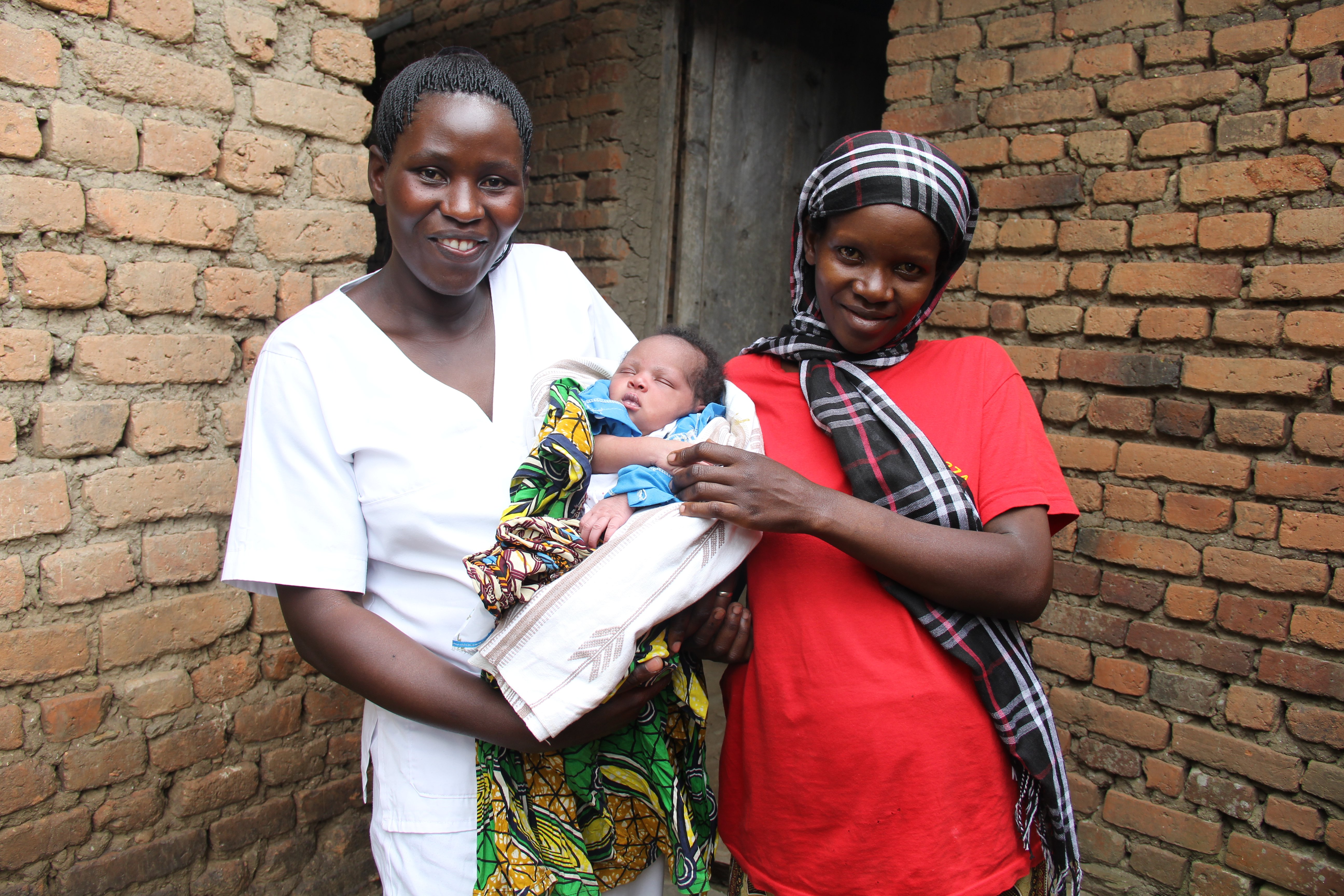Ngororero District, Rwanda – When Odette Banzubaze arrived at Shyira District Hospital in labor, she was filled with excitement. The 32-year-old farmer and mother of five felt no fear about the delivery in front of her.
But shortly after giving birth to a nearly 10 pound baby boy, Odette started bleeding heavily. She was in severe shock and began to lose consciousness.
“Odette was quietly saying that she is ‘going,’ meaning she was dying,” said Midwife Agnes Mukampeta. “I realized that I was losing her.”
Odette had a retained placenta as well as a tear in her cervix, which can cause life-threatening complications. Fortunately, Agnes – with skills gained from a recent MCSP training – knew exactly what to do.
“I immediately applied what I learned during basic emergency obstetric and newborn care training. It worked,” she said. “I was able to save her life.”
Agnes manually removed the retained placenta and repaired the cervical tear, which stopped the bleeding. With the help of a colleague, she managed Odette’s care, ultimately saving the mother’s life.
Just weeks prior, Agnes and 19 other healthcare providers from Nyabihu district were trained to deliver high-impact maternal and newborn health interventions – such as prevention and treatment of postpartum hemorrhage, pre-eclampsia/eclampsia and management of birth asphyxia – within the broader context of high-quality health services. These 20 providers were then selected to train others.
This training is part of larger MCSP efforts, in collaboration with Rwanda’s Ministry of Health, to build the capacity of healthcare providers from 10 districts in comprehensive emergency obstetric and newborn care services. With this support, more providers like Agnes will be able to deliver lifesaving services when they are urgently needed.

